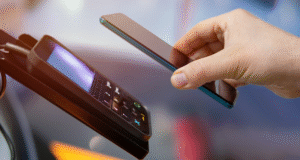How to increase your credit score at the end of the year with cc
Boost your credit score before the new year! Learn smart ways to use your credit card to improve your score fast and with stronger finances.
Learn how to increase your credit score with holiday shopping

As the year comes to a close, many people start reviewing their finances, and for good reason. The end of the year is a perfect time to improve your credit score, especially if you plan to make big moves next year, like buying a car, renting a new apartment, or applying for a mortgage.
One of the most effective tools to boost your score is right in your wallet, your credit card. Below, we’ll break down how to use your credit card strategically to give your score a year end lift, without overspending or falling into debt.
Why does your credit score matter so much?
In the U.S., your credit score determines your financial reputation. It affects whether you get approved for loans, how much interest you pay, and even your ability to rent or get utilities easily.
The most common model, FICO, ranges from 300 to 850. The higher your score, the better. Here’s what it’s made of:
- 35% – payment history;
- 30% – credit utilization (how much of your limit you use);
- 15% – credit age;
- 10% – credit mix;
- 10% – new credit inquiries.
To make real progress fast, focus on the top two, on time payments and credit utilization.
What if you’ve been carrying balances all year?
No worries, the end of the year is a great time to make extra payments. Even one or two large payments can significantly lower your reported balance and help your score rise before January.
Also, if your income or spending pattern changes after the holidays, request a credit limit increase.
This reduces your utilization rate instantly, as long as you don’t use the new limit for extra spending.
How can you lower your credit utilization fast?
Credit utilization is the percentage of your credit limit you’re using, and keeping it low is one of the fastest ways to increase your score.
- Aim to use under 30% of your available limit.
- For a stronger impact, stay below 10%.
Example: If you have a $3,000 limit, keep your balance under $900, or even better, under $300.
Pro tip: Pay part of your balance before the statement closing date. Credit bureaus see that lower amount, improving your utilization ratio right away.
Does paying on time really make that much difference?
Yes, it does, it’s the single biggest factor in your credit score. Missing even one payment can drop your score by dozens of points.
Set up auto pay for at least the minimum amount due on each card. Then, make manual payments to clear the balance if you can. That way, you’ll never risk a late fee or penalty interest.
If you’ve had late payments before, consistent on-time payments over the next few months can help rebuild your history faster than you might think.
Should you open or close credit cards right now?
Probably not. Closing cards, even unused ones, can hurt your score because it lowers your total available credit. That increases your utilization ratio and shortens your average credit history.
Instead:
- Keep old cards open if they have no annual fee;
- Use them for small recurring purchases (like a streaming subscription) to keep them active;
- Pay off those charges in full every month.
Can holiday shopping help your credit score?
It can, if you use your card strategically. The holidays are a perfect time to show consistent usage and earn rewards, but only if you pay off what you spend.
Try this:
- Use your credit card for planned gifts, groceries, or travel;
- Track your balance weekly to avoid surprises;
- Pay it off before your statement closes.
You’ll get the credit for responsible usage without adding long-term debt.
The bottom line
Your credit card can be your best ally or your biggest trap. Used wisely, it’s one of the most powerful tools to build credit and open new financial doors.
As the year wraps up, review your balances, set up auto-payments, and stay disciplined with spending. Start the new year not just with resolutions, but with a stronger credit score and more financial confidence.





